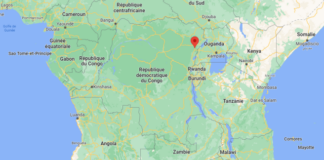There are still a little over two weeks to take the steps to vote by proxy in the first round of the legislative elections which will take place on June 12. The practice, strictly framed by the electoral code, allows a voter to be represented by another proxy. Its use has been constantly increasing since its creation in 1975, in particular due to the simplification of administrative procedures.
Proxy voting is one of the means to fight against abstention, feared by many political figures. And for good reason: according to the latest electoral survey conducted by Ipsos-Sopra Steria in partnership with the Sciences Po Political Research Center (Cevipof) and the Jean-Jaurès Foundation, for Le Monde, the intention to vote in the first round is between 45% and 49%, giving an average weight of 47%. Those under 25 are the least likely to vote (32% among 18-24 year olds and 34% among 25-34 year olds) when 66% of those aged 70 and over will place a ballot in the ballot box on June 12 .
Five years ago, the final turnout in the first round of the 2017 legislative elections was 48.7% and had never been so low. We are therefore once again heading towards a ballot marked by a significant abstention.
To vote in the legislative elections, it is necessary to have French nationality, not to have been deprived by justice of one’s civil and political rights and to be of legal age. Voters who have just turned 18 are automatically registered on the electoral roll of the municipality where they were enumerated. If the passage to the majority falls between the two rounds, they can vote for the second round.
The Ministry of the Interior has set up a tool on its website allowing you to query your electoral situation, accessible to everyone except voters in New Caledonia.
Simply enter your surname, first names, gender, date of birth and voting municipality (the last municipality in which you were registered, if you have moved) to consult your national voter number and download your certificate of registration on the electoral lists. This process also allows you to check that you are indeed registered where you think you are: if this is not the case, you are one of the so-called “misregistered” voters.
In France, the possibility of voting in legislative elections is legally linked to the place of residence of the voter: impossible to go to any polling station, on polling day, if you have not been registered there beforehand . Students still registered at their parents’ address, young workers transferred as part of their professional activity or precarious people evicted from their homes… 7.6 million people, including 51% of 25-29 year olds, were concerned in 2017, according to an information report on the matter to the National Assembly.
If this is your case, the service-public.fr site offers an electoral list change service. You will be asked for proof of identity, proof of the link with the municipality where you wish to vote (for example your electricity bill as proof of address).
If you are unavailable on June 12 and 19 but wish to cast your vote in the legislative elections, you can apply for a proxy on the site maprocuration.gouv.fr. It is possible to do so on the day of the poll, but you must bear in mind the time taken to take your request into account. “In the event of a late request, given the delivery times and consideration by the town hall of your power of attorney, it is possible that your proxy may not be able to vote in your place”, recalls the Ministry of the Interior.
Once the application has been completed, a physical verification of your identity by the authorities is necessary, by going to a police station, gendarmerie brigade or consulate whenever you wish. To choose your proxy – the person who will vote for you – you can select a person entitled to vote, without them being registered on the same list as yours (this is new for 2022). Please note: the proxy must always, on your behalf, come to your polling station (he will not be able to do so at his if the two are not in the same place).
As a reminder, it is not possible to vote in advance or remotely. Again, you will need to provide proof of identity.
If you wish to be appointed as a proxy, you can use the voter registration verification service presented at the beginning of this article to obtain your national voter number and communicate it to the person wishing to give you power of attorney. .

















